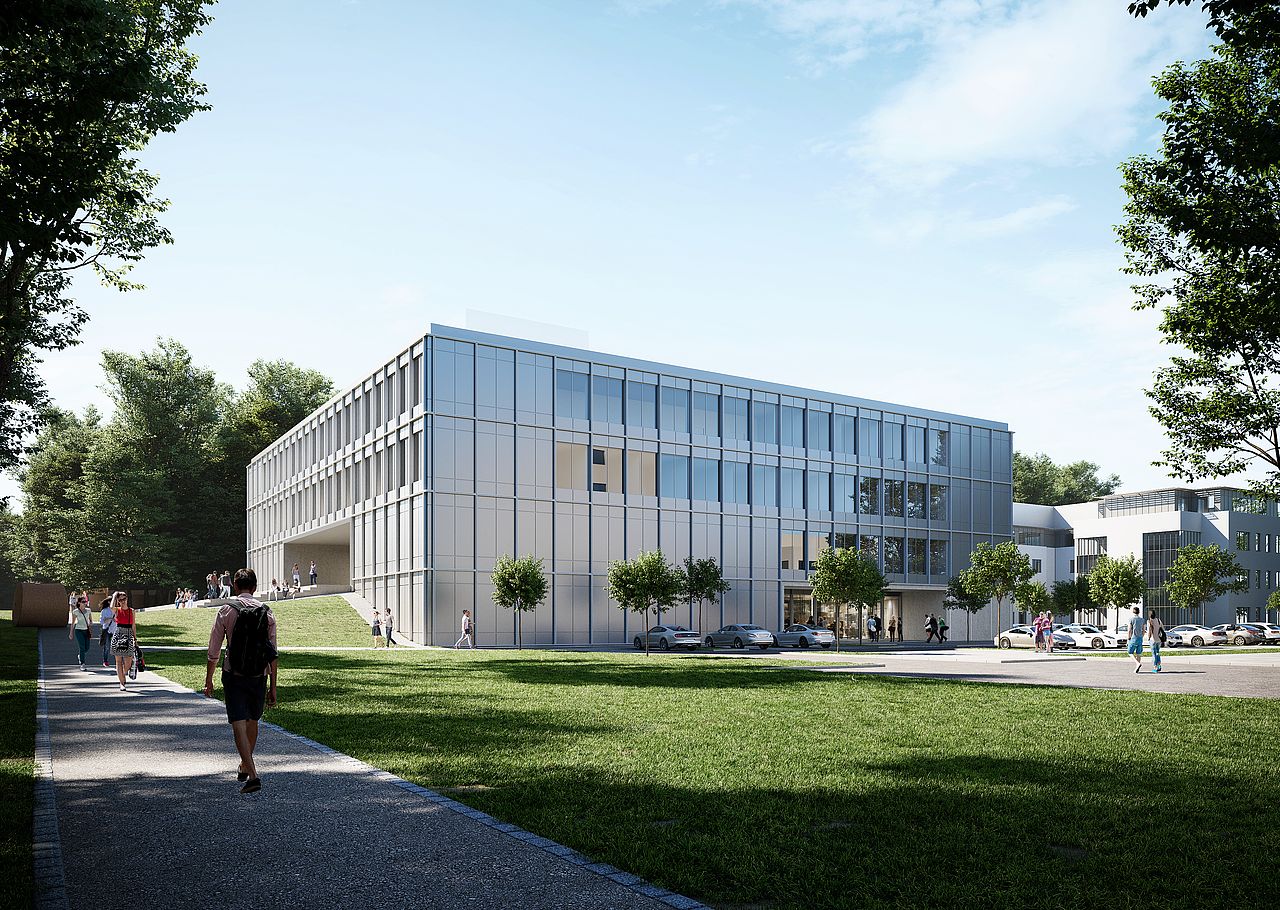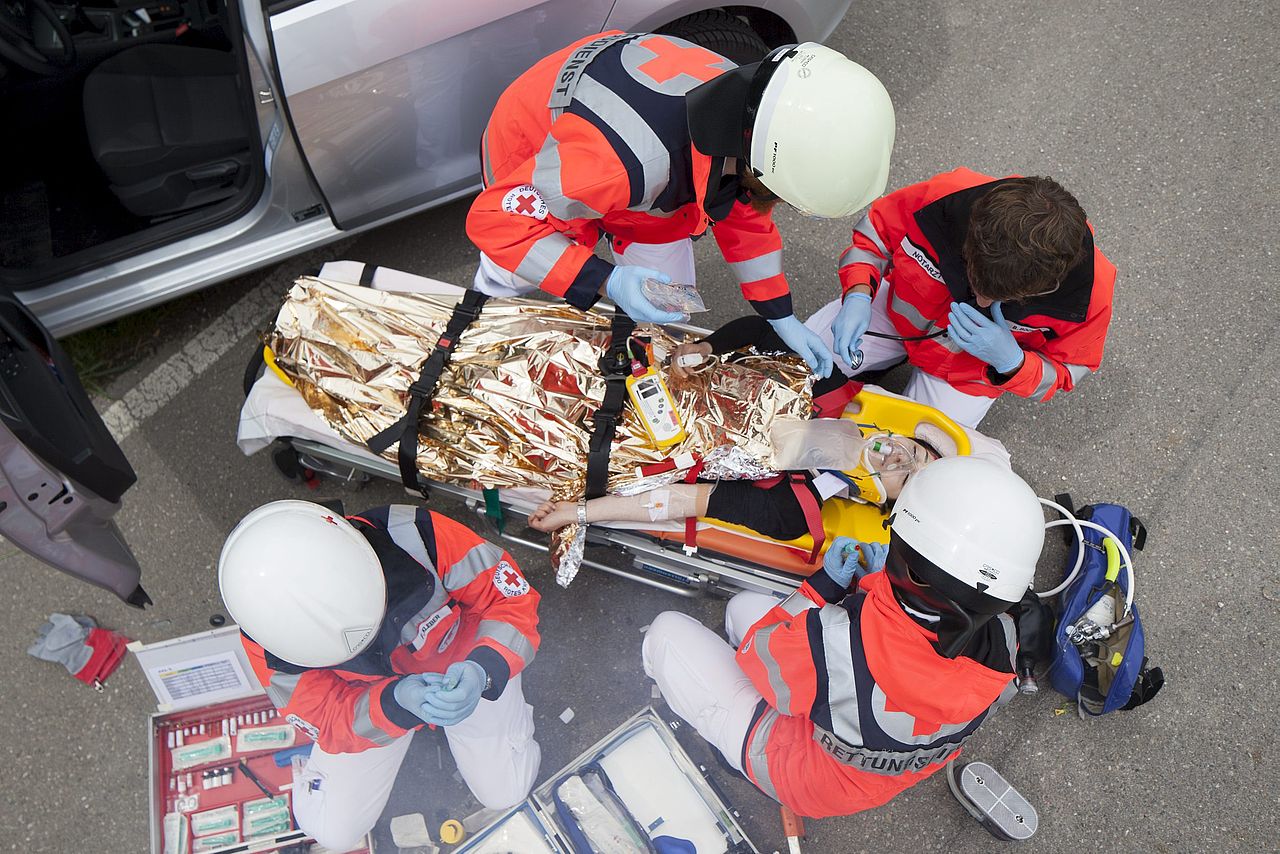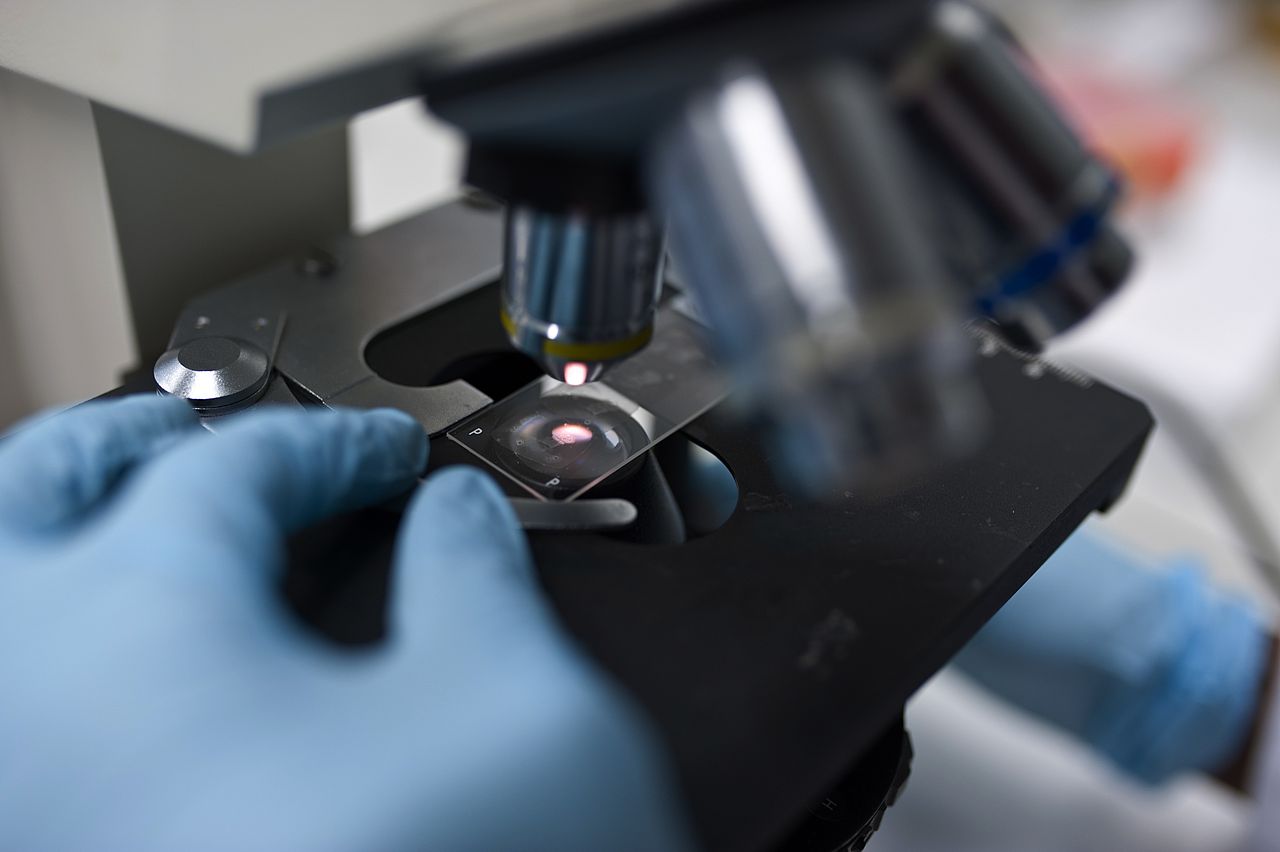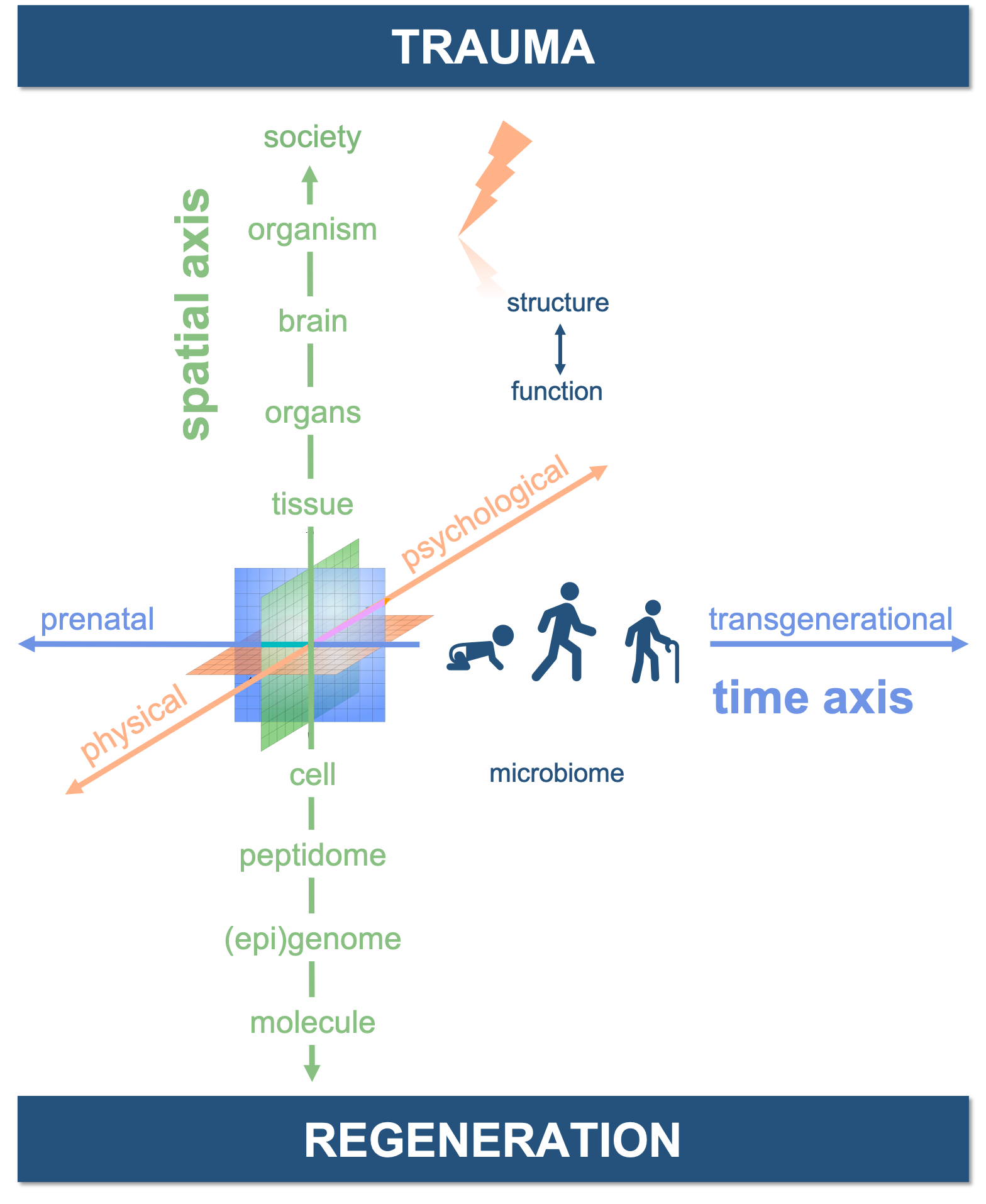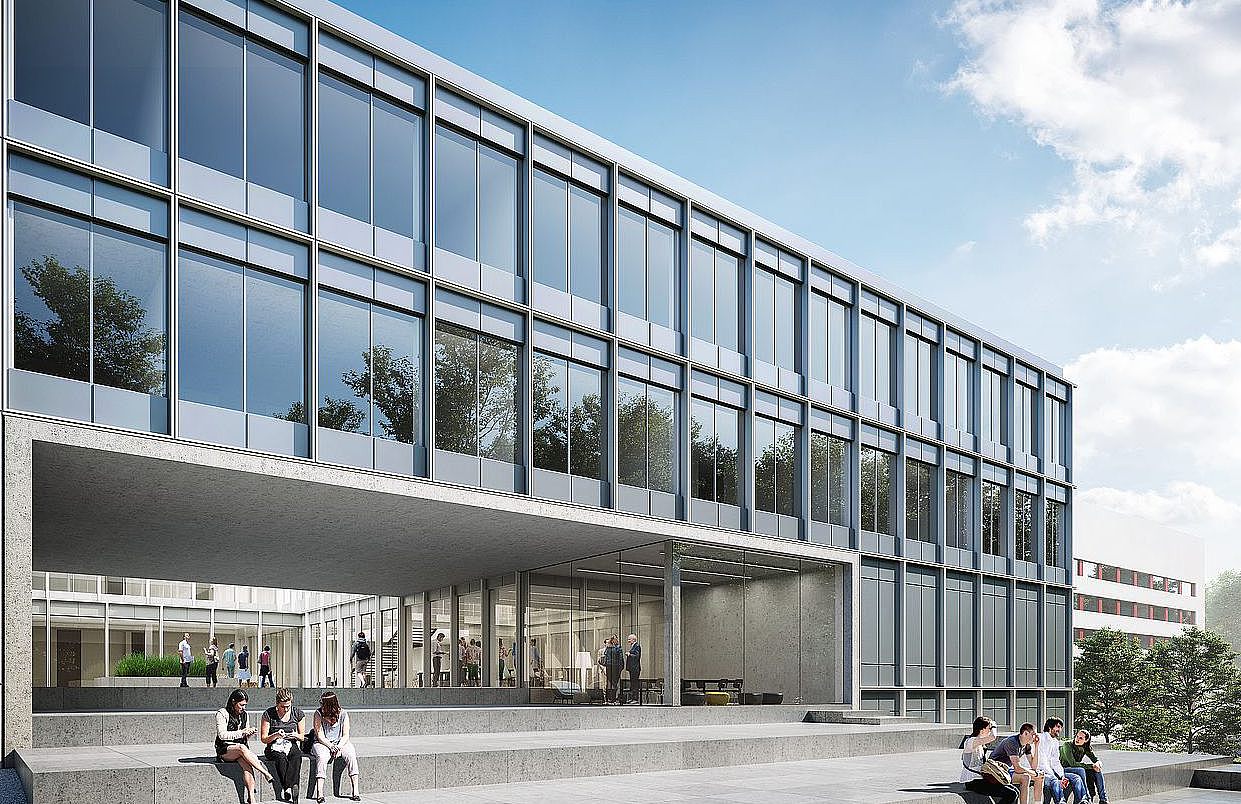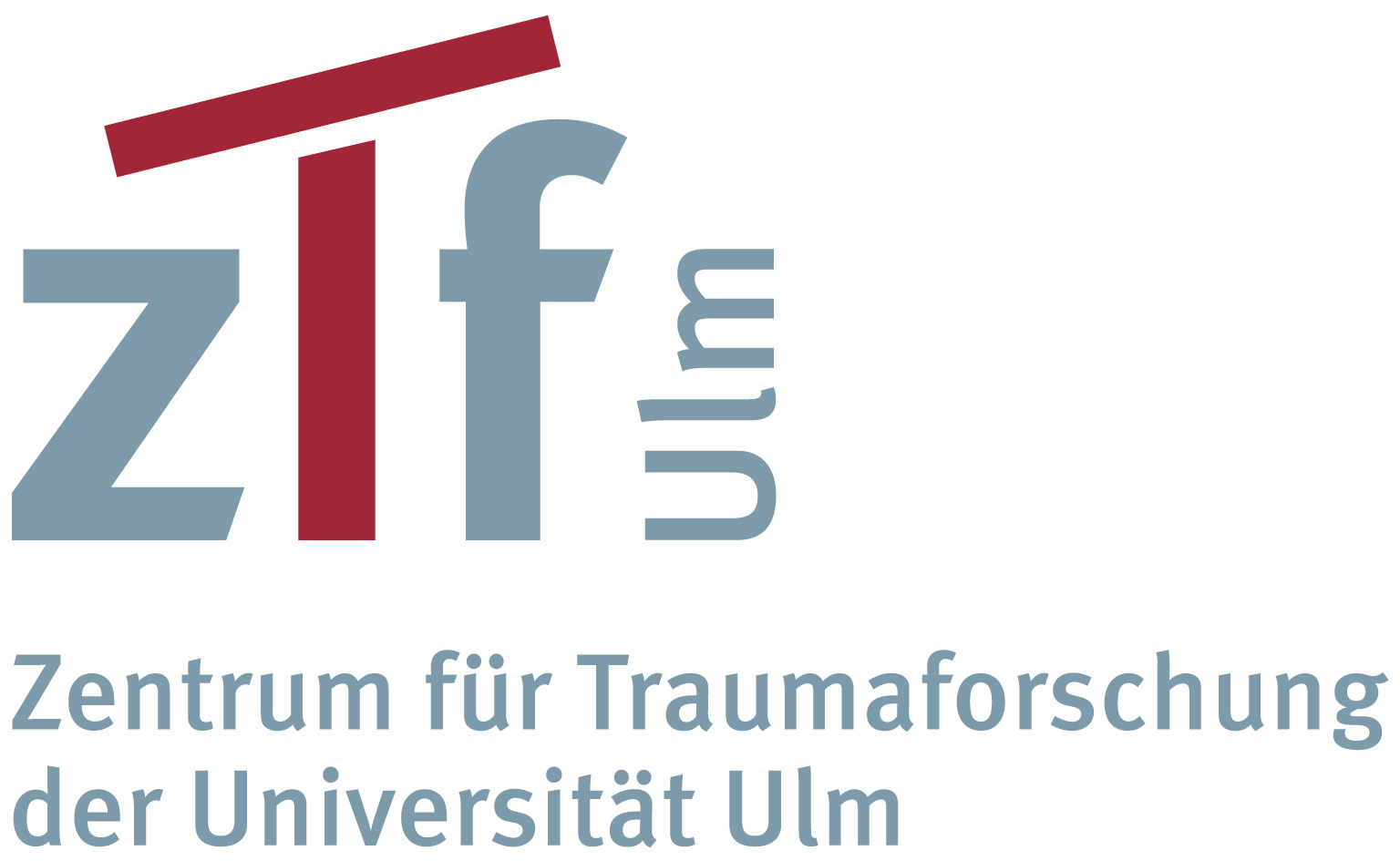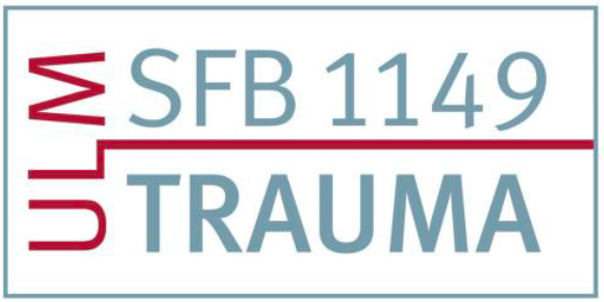Multidimensional Trauma Sciences
Trauma can affect anyone at any time – regardless of a person's age or medical history. It can be caused by physical and psychological injuries sustained by accidents or violence. In adults younger than 45 years, severe injuries are the leading cause of death. Trauma often has considerable physical and psychological consequences for the patient, resulting in high costs for treatment and rehabilitation. Considering its socioeconomic impact, research efforts into the causes and effects of trauma rarely meet society's needs.
Tissue and barrier injuries induce a complex danger response throughout the entire organism. Having recognized the risk potential, intercommunicating neuronal and immunological networks initiate molecular processes to achieve regeneration and healing. Thereby, different organs vary in their vulnerability, as well as their regenerative capacity. Various factors, including injury severity, age, gender and physical and psychological comorbidities, affect the danger response. This can cause acute complications, for example, infections and organ failure, as well as long-lasting physical and psychological damage. As a result of epigenetic changes, the consequences of trauma can even be passed on to subsequent generations.
To gain deeper insights into these complex interdependencies, a cross-disciplinary research approach, as it has always been practised in Ulm, is required. The scientific foundations are the findings from the Collaborative Research Center (CRC) 1149 "Danger Response, Disturbance Factors and Regenerative Potential after Acute Trauma", which has been funded by the German Research Foundation (DFG) since 2015 and in which 19 clinics and institutes participate, and the Center for Trauma Research Ulm (ZTF, Zentrum für Traumaforschung). In 2015, the ZTF was founded as a virtual center by Ulm University, with the objective to strengthen trauma research particulary at the interface between physical and psychological trauma.
By 2026, researchers from various disciplines will move into the emerging "Multidimensional Trauma Sciences" building, where they will find joint research areas provided for the investigation of trauma in multiple dimensions:
- from molecule to the organism and up to society
- connecting the physical and psychological consequences of trauma
- regarding the entire lifespan of an individual and even effects on subsequent generations
With this holistic, inter- and cross-disciplinary research approach, the scientists intend to develop innovative mechanistic, diagnostic and therapeutic principles, striving for therapies tailored to the individual trauma patient. Therefore, the MTW will serve as a central site for the Danger Research Hub Ulm (DaRe).
Illustrations: Heinle, Wischer und Partner, freie Architekten
Photos: DRK/Universitätsklinikum Ulm, Elvira Eberhardt, Heiko Grandel

